#Hoodoo Bible
Explore tagged Tumblr posts
Text
click the title link to DOWNLOAD This Book for FREE from THE BLACK TRUEBRARY

Would you like to find a way into the lost world and forgotten art of Hoodoo Rootwork and Conjure?
Are you looking for a modern guide on traditional African-American folk magic to cast powerful spells, craft conjuring oils and mojo bags, and build mighty altars to guarantee positive outcomes in your love life and professional endeavors?
Hoodoo was born out of sorrow and desperation, as a weapon and a defense, from the faith and resilience of the African slaves that adapted their religious tradition to the treacherous New World. As the world changed, Hoodoo adapted incorporating Native American herbal healing traditions and European religions and magical traditions, building a syncretic powerful folk magic system that works!
First prohibited, then ridiculed and commodified, Hoodoo has always been shrouded in secrecy and passed on quietly from generation to generation for fear of reprisal, contempt, and abuse and to this day is hard to find reputable sources on conjure and Rootwork. But don’t be discouraged!
I am proud to present The Hoodoo Bible: The 7-in-1 Root Doctor’s Companion to Black Folk Magic: an in-depth, all-encompassing, powerful 7-books-in-1 bundle that has recorded our rich heritage of herbal magic, traditional rootwork, and divination practices.
More exhaustive than any other book on the market, thoroughly researched and written with ease of use in mind, The Hoodoo Bible will accompany you through the spiritual path that our ancestors have beaten for us to explore the potent and practical magic of Hoodoo to claim justice, invoke protection, and find love, luck, and success.
With over 1000 authentic Hoodoo workings, these seven volumes will bring Hoodoo alive to budding rootworkers and adept practitioners alike:
The first volume will explore the history, culture, principles, fundamentals, and ethics of Hoodoo, giving you the theoretical groundwork you need to master the craft.
With the second volume the fun really begins! This practical how-to Hoodoo guide for beginners has everything you need to start practicing Rootwork and Conjure.
By the end of the third volume, you can start to call yourself a Root Doctor. With 275+ magical herbs, roots, spices, and curios, this book will help you craft powerful conjuring oils, spiritual baths and floor washes, magical teas and tonics, herb bundles and garlands to accomplish amazingly mighty Rootwork.
In the fourth volume you will find 30+ money spells, 25+ love spells, fertility spells, healing spells, and justice spells, with easy step-by-step instructions including a special chapter on inscribed spells and a complete guide on crossroads spells.
The fifth volumedelves into advanced spellcasting and conjure, teaching you how to conjure spirits, protect your home, banish your enemies, get revenge, and lay sneaky tricks. It includes a special chapter on graveyard spells and foot track magic.
In the sixth volumeyou will explore Hoodoo divination with step-by-step techniques for bone throwing, dice casting, and Hoodoo tarot. With a special chapter on dream divination and omens.
The seventh and last volume explores candle magic. This complete guide will teach you how to build an altar and use the magic of fire and the psalms to achieve your goals, be it money, success, luck, or love.
Applying Hoodoo magic to everyday life will help you achieve your goals in your private and professional life and along the way you will discover that working the roots has also sharpened your intuition, enriched your life, and prepared you for whatever may come your way.
So are you ready to discover the lost world and forgotten art of Hoodoo Rootwork and Conjure?
click the title link to DOWNLOAD This Book for FREE from THE BLACK TRUEBRARY
#The Hoodoo Bible • The 7-in-1 Root Doctor’s Companion to Black Folk Magic: Herb and Rootwork#Conjure Oils and Mojo Bags#Easy and Advanced Spells#Candle Magic and Divination to Get your Mojo Workin#HOODOO#Hoodoo Bible#African American Traditional#Root Work#Rootworkers#Conjure#THE BLACK TRUEBRARY
26 notes
·
View notes
Text
Gen1 14-19 is enough proof of Astrology. I AM even said astrology is sacred
“14 And God said, “Let there be lights in the vault of the sky to separate the day from the night, and let them serve as signs to mark sacred times, and days and years”
The vault of the sky or heaven is space, or ʌ sphere where celestial bodies appear to be projected.
Celestial bodies are planets.
ASTROLOGY is the study of movements and relative positions of CELESTIAL BODIES
Astrology IS NOT divination. Divination is the practice of seeking knowledge of the future or the unknown by supernatural means.
Astrology is SCIENCE. It CAN be proven and explained. Unlike the supernatural
Sacred by definition means Connected with God or deserving Veneration. God said AGAIN verse 14 and let them serve as signs to mark sacred times . So how I’m going to hell
#hoodoo#medium#witch#ancestor veneration#rootwork#black women#conjure#prophet#tutnese#luxury#Jesus#Bible#biblemagick#astralprojection#astral
12 notes
·
View notes
Text
Bibliomancy Readings Now Open

All readings are $10 and are delivered within 48 hrs here on tumblr. ❤️
#rootworker tumblr#rootwork#black tumblr#conjurer#hoodoo tumblr#bible hoodoo#bibliomancy readings#bibliomancy#divination#black spiritualist#black spirtualism
8 notes
·
View notes
Text
Fist post on this account but I have a theory for all the #workers that use the Bible (KJV + NIV) the Psalms tells us the phrase to use when we need the angels. The rest of the verse is reassurance, what you need us what you say to call on the lord.
11 notes
·
View notes
Text
Technomancy Tip
Recite this verse & Reblog for added luck 🍀
“Thou hast prepared feasts in front of me in the presence of my enemies. Thou anointed my head with oil & my cup runneth over. Assuredly goodness & mercy follow me ALL the days of my life, for I dwell in the house of YHWH forever.”
Excerpt from Psalms 23:5-6 used in ADOS Hoodoo Bibliomancy 📖
#hoodoo#black femininity#ciara wilson#big freedia#lousiana#vodou#bibliomancy#psalms#conjure#rootworkersofinstagram#juju#brujeria#folk magic#hoodoo spells#hoodoo heritage month#hoodoo community#black history month#leveling up#black music#technomancy#tech witch#psalm#psalm 23#Bible
118 notes
·
View notes
Text
what might transpire if some powerful inter-governmental agency had the power to file a RICO case against the citizens of the United States? from where would you divest first?
what if God filed a RICO case on us? what might you find yourself complicit in?
now is the time to repent. now is the time to have a change of heart & mind.
always remember that the laws of the Heaven are higher than the laws of the Earth, as the laws of the land are higher than the laws on the water.
have I considered that when I stand before God at the end of my life— encountering the One for the first time as Judge—I will be alone with only the Cloud of Witnesses, Christ the Advocate, the Accuser, & the Judge? my defense will only be the truth of what I’ve said & done & the justifications for those words, deeds, thoughts, actions; the Fruit of the Spirit I cultivated during my time on Earth; the love I displayed for my neighbor. what will become of me in the presence of the reality of who I am? when I leave this Earthly realm/dimension will I be satisfied with who I became?
#God#spirituality#free palestine#bible#hoodoo#christianity#black spirituality#afro spirituality#qtna#meditation#lament
1 note
·
View note
Note
Hello!! I was wondering if you have any book recommendations for Appalachian folk magic? Especially for a beginner, I’m familiar with our local “old wive’s tales” but I’d love to learn more!!
Hello there! I have answered this question before but I have some new resources so I'll list them here!
It really depends on which part of Appalachia you are looking at! And if you want to dig deeper the ancestral roots of the family you are looking at. For example my family has a lot of Welsh and British influence because that was our family source so a lot of those beliefs lingered and changed throughout the years!
Someone from Pennsylvania would likely have a lot more German roots for their practice. But despite the root differences for the folklore these practices stem from they do still share a lot of connecting points!
But having babbled all of that here are my favorite books on AFM specifically. (Mind you Christianity takes a super huge part in the practice so a lot of bible and doing things in threes for the Trinity is involved!)
Authors to check out:
H. Byron Ballard- A pagan who also practices AFM, from the NC side of Appalachia, a lot of people hate her writing style which is a bit ramble-y. I also dislike the term she uses for her own practice but that is a super simple and small complaint honestly. I own all of her books on the subject, which should say something.
A NOTE ON H. BYRON BALLARD: I no longer support her work after discovering she is a TERF. I will no longer be suggesting her as an author to follow.
Jake Richards - From Eastern TN like me! A lot of what he talks about are things I have seen before, and he breaks down complex concepts like burn blowing into something relatively easily understood. HOWEVER HAVING SAID THAT the author is partially Melungeon, so he does have some Hoodoo mixed in from his grandmother's side iirc? He does label these things in his works and explains that they are not for everyone which I do appreciate.
Rebecca Beyer - While vaguely Wiccan toned, which I attribute to her publishers/raising, she's a transplant to Appalachia and if you're looking for herbal information on Appalachia and to wax poetic about how even with a ton of people settling there SO MUCH of the natural herbs and plantlife still survive, read her work! Her work on foraging safely and environmentally is so SOOOOO good.
Brandon Weston - For Ozark Mountain range/German/Dutch Appalachian work! He has written quite a few books on the subject and all of them are a treat!
Roger J. Horne - For how to dig into folklore and apply it to your own practice! This author is pagan and does blend in some traditional work with the Appalachian but I do enjoy his work and how he applies folklore. This author is also FROM Appalachia which is nice to see.
INDIVIDUAL BOOKS TO READ:
Appalachian Folk Healing by Jake Richards - A republication of a very old book on remedies and 'spells', while kitschy and stupidly worded, after all it was a popular book created just for sales reasons, some of these remedies are things I remember having done to me! Good for both a giggle and actual information. TW for mentions of animal parts, hunting, illnesses, the G slur, period specific phobias and racism.
Albertus Magnus - These books all supposedly written by an ancient guy, were actually mildly common on traveling salesmen's trucks and wagons. So as a result a lot of people in Appalachia had access. Like the book above it is very stupidly worded and definitely of their time. Same TW as above.
Pow-Wows or Long Lost Friend - Another Pennsylvania Dutch book! Very good and very clear.
Southern Folk Medicine - A book that breaks down a lot of common medicinal beliefs in the South which does include Appalachia! Sadly not just Appalachia but a very good book regardless. THIS BOOK MADE ME UNDERSTAND THE THEORY BEHIND BLOOD ISSUES MORE THAN ANYTHING ELSE EVER HAS.
Moon Eyed People - A collection of Welsh folktales that brewed within Appalachia from Welsh immigrants. Very good book imo!
Granny Buck's Dibs and Dabs - This book is so worth the price tag! One of the more expensive books in my collection, but I'm fine with that. Granny Buck covers a lot of topics and I can feel the accent through the wording!
Signs, Cures, & Witchery - More German Appalachian stuff! This book and it's interviewees are from the Kentucky side of the mountains!
Witches, Ghost, and Signs - This book is based more in the Southern Appalachian area! Georgia, SC, NC, and TN specifically! Lots of folklore here, but does mention some not so great bits of the lore, but that is expected.
The Foxfire Books - What began as a school project exploded into a collection of true to life stories and idioms from Georgia elders within the mountains. SO SO GOOD OKAY? For everything. How to plant, hunt, make musical instruments, anything from the mountains? They cover.
#buggy answers#afm#appalachian folk magic#This is by no means a complete list.#But a good starting off point!#book reccs
89 notes
·
View notes
Text
Today we venerate Ancestor & Hoodoo Saint Nat Turner on his 223rd birthday 🎉
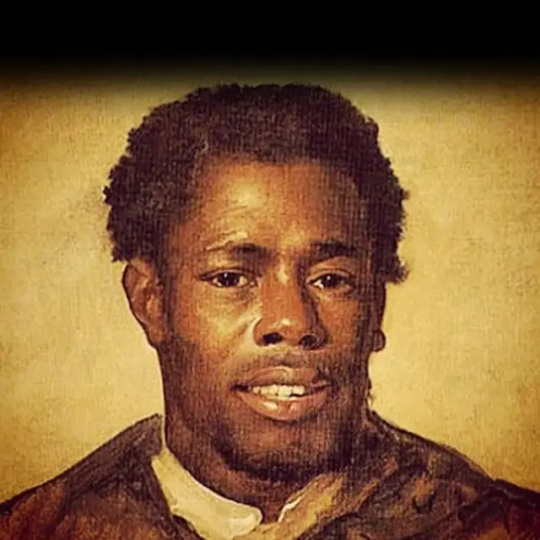
King Nat was a Seer, prophet, preacher, & Freedom Fighter who used his intuitive gifts to spearhead one of the greatest slave rebellions in U.S. History; one that would shift the trajectory of Black lives under Maafa for decades to come.
King Nat was born enslaved on the Benjamin Turner plantation in Southampton Co., VA. He was a highly intuitive and gifted child. He could easily recall events that took place in his life as early as 3 or 4 years old. He also foretold of events that occurred before his time. His grandmother was a deeply spiritual elder and nurtured his spiritual development. His mother and many of those enslaved on the Turner plantation knew that he would become a prophet & was surely destined for a higher purpose.
For his "uncommon intelligence ", Nat learned to read & write at a young age at which time he was also indoctrinated into Christianity. His interpretation of the Christian bible convinced him that the Christian God condemned Slavery. This inspired him to become a preacher.
By age 21, King Nat was a prolific Seer & was known as, "The Prophet". Nat received many visions & Divine messages over the course of his life. Much of which guided him to avenge slavery & free our peoples from bondage. He had a series of 3 visions that would set him on course to fulfilling his highest purpose, thus forever impressing his name upon in U.S. history.
The 1st vision came as he was following in his father's footsteps, fleeing the plantation. To everyone's astonishment he returned of his own volition after spending 30 days in the woods because, “the Spirit appeared to [him] and said [he] had [his] wishes directed to the things of this world, and not to the kingdom of heaven, and that [he] should return to the service of [his] earthly master.” One year later, the devil died.
On May 12, 1828, Nat he received a 2nd vision, as he witnessed a solar eclipse. He “heard a loud noise in the heavens, and the Spirit instantly appeared to me and said the serpent was loosened, and Christ had laid down the yoke he had borne for the sins of men, and that I should take it on and fight against the serpent, for the time was fast approaching when the first should be last and the last should be first.” This, he believed to be the sign he had been promised.
On, August 13th 1831, Spirit delivered a 3rd message; in the form of lights across the night sky. At which time, an atmospheric disturbance across the sky in the aftermath of an eruption at Mount St. Helen's (3,000 mi away) caused the Sun to appear bluish-green in color. Nat prayed to learn their meaning. For Nat, this reaffirmed the work that he'd been called to do; to move forward with his mission to avenge Slavery & free those he could. From then on his plans were set into motion.
At 2am on August 22nd, King Nat led his peers & allies into rebellion. They struck their slaver's household first; slaughtering the entire family. From there they went from house to house, killing every single devil in their path. By noon, they marched toward the neighboring town of Jerusalem where a White militia of 3,000 men lie in wait for them.
Most of the rebels were either captured or killed - except for Nat. He managed to escape & eluded Virginian authorities for 2mo. He hid in the woods just miles from his former slaver's plantation. He was discovered on October 30th by an armed farmer who stumbled across him hiding in a foxhole. Emaciated and weak, he surrendered willingly. After his arrest, Turner was taken back to Jerusalem where he stood trial & was convicted, then sentenced to death by hanging. Nat was killed on November 11th.
To our deepest disdain & no suprise, he was denied a formal burial. Instead, his body was taken to doctors for dissection, to be distributed among affluent White families. He was skinned to make their purses. His flesh was turned into grease. And his bones were divided up into trophies. These became heirloom souvenirs to be passereceive among these affluent White families for generations.
Although King Nat did not end slavery as he had hoped, he & his allies avenged those who wronged them, and they did, ultimately, achieve their freedom from this world. Nat became immortalized as a symbol; of warrior strength (for us) & a catalyst of White fear. King Nat single-handedly shook the institution of Slavert at its core. So much that it stretched the divide between Pro-Slavers & Abolitionists. Pro-slavery advocates began calling for greater restrictions on "Freefolk" & demanded that Abolitionists cease their interference with Slavery. In Virginia, politicians saw Nat's intelligence & education as a major threat, thus outlawing the practice of teaching enslaved Peoples how to read or write. Abolitionists' efforts to end Slavery only intensified. This set the stage in U.S politics for the Civil War.
"I had a vision - and I saw white spirits and black spirits engaged in battle, and the sun was darkened - the thunder rolled in the Heavens, and blood flowed in streams - and I heard a voice saying, 'Such is your luck, such are you called to see, and let it come rough or smooth, you must surely bear it." - Nat Turner; "Confessions of Nat Turner".
Let us remember that it was more than bravery, nerve, & standing ten toes down that drove King Nat's rebellion to success. It was, first and foremost, leading with Spirit & trusting in our intuitive/Ancestral gifts.
We pour libations & give him💐 today as we celebrate him for his gifts, Divine trust, bravery, and sacrifice. May we lift him up in prayer & offering in gratitude & lace toward his elevation.
Offering suggestions: prayers toward his healing/elevation, a Methodist bible, libations of water - especially on the battlegrounds of rebellion in Courtland, VA/Benjamin Turner plantation/, read & share his confessions
‼️Note: offering suggestions are just that & strictly for veneration purposes only. Never attempt to conjure up any spirit or entity without proper divination/Mediumship counsel.‼️
#the hoodoo calendar#hoodoo#hoodoos#atr#atrs#ancestor veneration#nat turner#Nat Turner day#hoodoo heritage month
171 notes
·
View notes
Text
The Hoodoo That You Do
Hoodoo first and foremost is a closed practice.
Within a western audience, the concept of a closed practice can be rather challenging for many, as it runs entirely contrary to the notions we are brought up believing surrounding religion in the West.
Socio-culturally, religion in the West has evolved under the mantle of Christendom. This evangelizing religion characterized by its soteriology(savior ideology) , ease of access, and proselytizing habits is open to all, radically so. All you need is to accept Christ as your personal Lord and Savior, and live righteously according to the Bible to secure eternal salvation. In many respects, Christianity uniquely conquers the mystery religions of old, characterized by their distinctive intimacy with the divine, secrecy and ritual, and subverts it, by making it universally open to all and actively telling you about it.
This line of thinking regarding "closed practices" can also be difficult with many western minds that have had extensive influence from movements such as the “New Age” movement, which seeks to bring together unrelated material spiritual identities under one umbrella.
Many people in the “New Age” movement have been largely influenced by the writings of the Theosophical society, which were some of the first writings on Dharmic religions available to a broad audience in accessible languages in western countries. This means that many of these individuals ideologically do not believe in the idea of culture since they eschew the cover of self, many believe we reincarnate across familial lines, species and even galaxies, fall prey to solipsism and claim that they themselves are the only real thing that exists, therefore everything is open to them, or purport an intrinsic universal connection through the Jungian collective consciousness that makes all things open to them. Having a unique gnosis dependent on your religious affiliation is normal and expected, using it to harm others is not.
Similarly, Christianity undermines the concept of ethnic religions and cultural religions which are predicated upon being born into them, or having immediate access into certain respective belief systems for validity in practicing them. Finding Divinity in the Christian tradition has nothing to do with where you were born, who you are or how you were brought up, but rather, is entirely up to ideology, practice, and a consistent theme of universalism.
However, as stated prior, due to ethnic and cultural religions being experiential, they are much more tied to a way of life, being, and a contextual identity in order to operate within the cosmological framework. This can be ancestral; do you descend from the founders of the tradition, are you connected by blood in some significant way in recent history? Land-based, i.e venerating a particular river, mountain, cave etc. And lastly, communal, do you speak the liturgical language of the religion, do you eat the same foods, do you understand the offerings? Many ADRs fall into the aforementioned pattern above. Many Hougans and Manbos will tell you that there are Lwa(Intercessory divinities in Vodou/Voodoo) that can only be summoned on Ayiti, making it a uniquely land based practice, and while in Santería, Boromú, an Orisha associated with the desert,and dryness, all but disappeared in lush and tropical Cuba. Most, if not all religions do start as ethno-religions, and many of them still have vestiges of these ideas present within them, and despite the open and universal evangelism of Christianity, even its spiritual practices fall into some of the land specific beliefs and functions mentioned previously.
It is in this contextualization of land, self and identity, that we begin to understand Hoodoo as not merely a “folk magic” practice, but a Magico-Religious tradition uniquely conjoined with the cosmological spiritual experience of Soulaani people in the United States. Hoodoo, like many American ADRs, is plantation religion, and as with the mentioned ADRs above, Vodou and Santería respectively,is syncretist in nature and a highly Africanized interpretation of the Christian faith which was violently enforced upon the enslaved.
Hoodoo historically is a belief system that was foundationally built as a form of resistance to European oppression, violence and abuse. With an emphasis on ancestor veneration, figures such as Nat Turner, Harriet Tubman and Frederick Douglass are heralded as elevated community ancestors, whilst figures such as High John The Conqueror, a mythic African king who could outfox any Slaver or false master, is deigned a powerful, worthy, and venerable Spirit.
The cosmology of Hoodoo, while being deeply Christian, is Animistic in nature and boasts a large host of Land and Place spirits with whole identities and person-hoods. Some of these spirits are “Elevated Ancestors” similar to the saints of Orthodox and Catholic traditions, while some of them are entirely natural in origin such as Simbii or Samunga.
Hoodoo, similarly to the American south from which it originates, exists equally in a Protestant and Catholic context, and also incorporates Native American wisdom and land knowledge into its Theological foundation because of Indigenous admixtures in Black populations, and vice versa, as can be seen by the Florida Seminole tribe with it's high afro-indigenous population to this day and many more.
With its context, it is no wonder that people feel that Hoodoo is an open practice, by its very origin, it is an act of black labor, meaning, it's meant to be exploited. All black labor, be it intellectual, physical, emotional or in this case, spiritual, is an open and free resource that can be cheerfully parasitized from by a broader audience, without acknowledging its history, origins or foundations. This unfortunate reality extends even beyond the Black American experience and universally unites the Black diaspora in imperialist or colonial states worldwide. When researching the origins of certain foods, dances, customs and ideas, it will be difficult to find the genuine full hearted acknowledgement of the enslaved and their contribution to broader knowledge and culture, this is the case in Latin America as well in both material and spiritual culture.
The colonial state chooses what is “Everyones” or rather, “American” and what is “Black” at any given time, and can choose to revoke and review these designations at will. A particularly clear example is Jazz music.
What once started as the herald of reefer madness, debaucherous devil music and depravity, has become the backdrop of urban luxury, sophistication and wealth. This is of course after the domestication of jazz at the hands of predominantly white musicians, who made it more palatable to the broader audience and it's popularization among the rich and famous.
Another example is soul food. What many consider to be “southern cuisine” is uniquely Soulaani in origin, however, due to the overall positive reception, accessibility and good reputation of soul food it became subsumed into the greater American identity not as a black invention, but an American one.
Similarly, Hoodoo received much of the same treatment in the late 80s- 90s. Instead of the lowbrow superstitions of slaves, Hoodoo was rebranded as a distinctly American “hodgepodge” practice, meant to appeal to aesthetics surrounding pastoralism,the rustic rough and ready, and a peculiar edginess, ethnic enough to bite but close enough to home not to leave a scar, after all, Hoodoo was never African according to Ross, and Hoodoo “Authorities” such as Yronwood “The earliest usage of the word “hoodoo” is connected with Irish and Scottish sailors, not African slaves, and may be a phonetic pronunciation of the Gaelic Uath Dubh (pronounced hooh dooh) which means evil entity or spiky ghost. In the mid 19th century, cursed, abandoned “ghost ships'' were called hoodoo ships or were said to have been hoodooed.”(2021,Ross).
The ability for the colonial machine of the U.S to change and claim things from being one thing, and subsume it into a greater American identity without any of its former history, or identity, is one of the things that makes colonial nations so distinctly villainous in the continued exploitation of marginalized identities. Such as Britain's National dish being Chicken Tikka Masala without even acknowledging the incredibly dark history of the East India Company and its dark impact on the whole of the Indian subcontinent. This consumption of identity is the reason why the black American appears to be “without culture”, and why Black Americans themselves can occasionally feel bereft of a unique identity. Often noted by others across the Black diaspora, Black Americans are often the butt end of everyone's jokes from the Caribbean, Latin America and Africa itself. This “stateless” identity sometimes displayed by Black Americans is by design by the colonial state, and a symptom of religious displacement and spiritual abuse at the hands of said colonial powers.
This powerful and calculated form of psychological warfare and its effects can be seen in the likes of Hebrew Israelites who claim to be the original Jewish diaspora, Kemetics who claim to be the original Egyptians and those who claim to be the original Native Americans. This speaks to a desperate longing to belong to something that goes back centuries, that is ancient, and worthy and powerful, none of them wanting to claim the legacy of slavery and its ramifications. With many Black Americans struggling to accept the lived history of chattel slavery, who will proudly embrace this “plantation religion”?
With these contributing factors, Hoodoo can come across as being either a failed attempt at reconnection conceived in the minds of desperate African Americans, a made up ahistoricism (as is often asserted in the case of Voodoo in Louisiana) or a genuinely all American folk practice open to all with no authority, order, or true history.
In fact, referencing a broader global view of African Americans, their customs, practices and identity,a global audience inverts the name into American Africans. A culture and identity that is a product of the eurocentricity and whiteness around it. America appears to be the land of “The Whites” and a “Second Europe” in public perception. However, many of these narratives come from individuals who have either; A. Never set foot in America or B. Decided that they would base all their perceptions off of an experience they had on a trip they took to Greeley Colorado in 2009, and movies. Neither of these are accurate as the American identity is not homogenous.
Hoodoo, while originating in the American South, is a land-based spiritual practice. Subsequently, it has evolved tremendously as it made its way Westward and North among the black diaspora itself. All spiritual practices, particularly land based practices, are beholden to regionalism. Regionalism is the antithesis of homogeneity. It is reflexive to categorize the gamut of all things with “American” origins as one homogenous mass, but this is both intellectually and materially disingenuous. All ADRs are regionalist, and this alone creates a dramatic difference in said practices.
Take for instance the various emanations of Palo, with four major denominations, Monte, Kimbisa, Briyumba and Mayombe. These four distinct Theological traditions evolved separately, largely in part because of geographical differences and different leadership. These seemingly subtle differences evolved overtime into hallmarks of an identity in how each sect handles spirits, the spirits they venerate, language(s) used, and major beliefs pertaining to cosmology and world structure. Notice however that all of these originated on the Island of Cuba. Cuba is roughly 750 miles long and 60 miles wide, driving from Denver Colorado to Billings Montana is 693 miles and takes around 10 hours to drive, while it typically takes only one hour to drive around 60 miles. The variety of spiritual beliefs in one tradition in a stretch of 750 miles is profound, and this isn't even taking into account the other traditions on the island, so why would we expect it to be different in the United States?
Which leads me to the question, what is the Hoodoo you do? Do you know its region, its history, its spirits? Just as there isn't a generic “Palo” tradition, or a Generic Vodou/Vudú/Voodoo, which also boast a robust number of lineages, most notably Tcha Tcha and Asogwé, there is not a “generic” Hoodoo, and the question becomes less about whether or not it's closed(it is), and more about it's cultural relevancy. The Hoodoo of a third generation New Yorker is going to look wildly different from the Hoodoo we see from a third Generation Californian, and let's add a caveat, the Hoodoo you see from a third generation Californian in the Bay area is going to be different from the Hoodoo from a Los Angeles Hoodoo, because of admixture, geography, and exogenous and endemic cultures in the region. In that same vein of inquiry, do you draw your lineage from the Baptist tradition of Churches, AME, Catholic, African American Spiritual tradition? All of these differences make for a different practice, and different structure.
Among the variations and differences in the Hoodoo tradition of the U.S also comes differing and various cultural attitudes to Hoodoo itself. In the broad Americas(the Caribbean and LATAM Included) the practice of banning and criminalizing Black and Indigenous spiritual practices was incredibly common and could be as dire as even leading to an individuals death “After emancipation, many countries in the Western Hemisphere passed new legislation attempting to suppress the religious practices of the formerly enslaved under the guise of “civilizing” their populations. Countries like Brazil, Jamaica, Cuba, and Haiti enacted laws that prohibited persons from engaging in “superstitious” rituals, fortunetelling, vagrancy, and similar practices. In the United States, African American herbalists and sages (whom the media described as “voodoo doctors”) were also arrested for providing medico-religious and divination services. However, once again, the U.S. government deployed generally applicable laws to suppress these practices; they did not craft new legislation to target the “superstitions” of the formerly enslaved. These individuals were charged with contravening laws against obtaining money by false pretenses, mail fraud, practicing medicine without a license, and related offenses.”(Boaz, 2017). Because of this, black America did their best to disassociate with “superstitions” and “barbaric” customs to avoid further discrimination and being targeted. If you went up to a black elder and asked them what “Hoodoo” was, they'd probably slap you in the gums and call down Holy Ghost fire upon you and yours. It wasn't until 1996 that the American Indian religious freedom act was codified into law after years of indigenous communities enduring the same discrimination as Black ones for alternative spiritual customs and traditions could finally safely practice their own religious and spiritual customs without fear, and these attitudes still linger in both communities respectively.
With all that being said, the question remains. Why must it be Hoodoo that you do? Were you adopted into a family that lovingly shared it with you from the time you were young to now? Did you break bread with these people, do you fight for their liberation with every breath? Do you really think being black in a “past life” grants you access to the trauma you most likely care very little about in this present one?
Magico-religious folk customs are a dime a dozen, many, open! Some closed. Hoodoo however, is contingent upon the social memory of slavery, oppression and a fight for justice. When putting the spirits to work, do you do so with a spectral whip in your hand, and the entitlement to Black bodies and Souls of those who came before you? The joy of learning and spiritual specificity is that you can find a practice you resonate with out of the multitudes that litter the masses of the American continent that may be socio-culturally relevant to you. Such as Italian stregheria which is prominent in some parts of upper Appalachia and New York, Ozark and Appalachian granny magic, Cajun Traiteur, Spanish American Brujería of the Southwest (as in SPAIN),Pennsylvania Dutch Braucherei, there are even Cunning folk practices associated with the Mormon church and Utah. Some of these despite being of European American Origin, are also closed because they are experiential.These are all uniquely American in nature, this is excluding places outside of the U.S who also have a multitude of open mystical practices, such as Ancient Egyptian Heka, or Hellenic Göetia, none of them with the baggage of Indigenous and Black trauma as an aesthetic.
Ultimately, everyone will do what they want and that's just a fact of life, I however hope this helps you stop and think of the damage you do to your Black and Brown siblings whose ancestors died for the right to pray to a God that looked like them when you insist on the right to access to BIPOC labor spiritually,mentally and physically.
#hoodoo#spiritualism#african american spirituality#soulaan#espiritismo#atr#african traditional religions#african diasporic religions#vodou#vudu#voodoo#santería
73 notes
·
View notes
Text
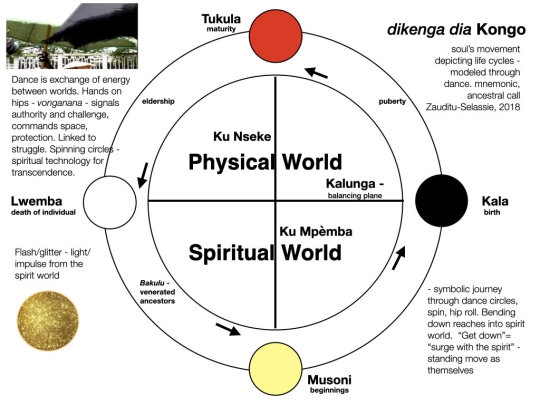
Archeologists also found the Kongo cosmogram on several plantations in the American South; they were Richmond Hill Plantation in Georgia, Frogmore Plantation in South Carolina, a plantation in Texas, and Magnolia Plantation in Louisiana. Historians call the locations where crossroad symbols were possibly found inside slave cabins and African-American living quarters as 'Crossroads Deposits.' Crossroads deposits were found underneath floor boards and in the northeast sections of cabins to conjure ancestral spirits for protection. Sacrificed animals and other charms were found where the crossroads symbols were drawn by enslaved African-Americans and four holes drilled into charms to symbolize the Bakongo cosmogram. Other West-Central African traditions found on plantations by historians is the use of six pointed stars as spiritual symbols. A six pointed star is a symbol in West Africa and in African-American spirituality.
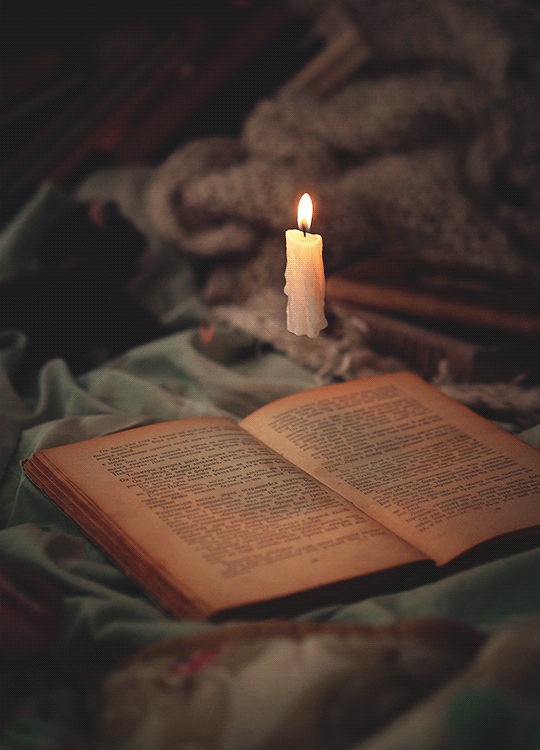
On another plantation in Maryland archeologists unearthed artifacts that showed a blend of Central African and Christian spiritual practices among slaves. This was Ezekiel's Wheel in the bible that blended with the Central African Kongo cosmogram. This may explain the connection enslaved African Americans had with the Christian cross as it resembled their African symbol. The cosmogram represents the universe and how human souls travel in the spiritual realm after death entering into the ancestral realm and reincarnating back into the family. The artifacts uncovered at the James Brice House were Kongo cosmogram engravings drawn as crossroads (an X) inside the house. This was done to ward a place from a harsh slaveholder. Also, the Kongo cosmogram is evident in Hoodoo practice among African Americans. Archeologists unearthed on a former slave plantation in South Carolina clay bowls made by enslaved Africans that had the Kongo cosmogram engraved onto the clay bowls. These clay bowls were used by African Americans for ritual purposes.

The Ring shout in Hoodoo has its origins from the Kongo region from the Kongo cosmogram (Yowa Cross) and ring shouters dance in a counterclockwise direction that follows the pattern of the rising of the sun in the east and the setting of the sun in the west. The ring shout follows the cyclical nature of life represented in the Kongo cosmogram of birth, life, death, and rebirth. Through counterclockwise circle dancing, ring shouters built up spiritual energy that resulted in the communication with ancestral spirits, and led to spirit possession by the Holy Spirit or ancestral spirits.
Enslaved African Americans performed the counterclockwise circle dance until someone was pulled into the center of the ring by the spiritual vortex at the center. The spiritual vortex at the center of the ring shout was a sacred spiritual realm. The center of the ring shout is where the ancestors and the Holy Spirit reside at the center. The ring shout tradition continues in Georgia with the McIntosh County Shouters. At Cathead Creek in Georgia, archeologists found artifacts made by enslaved African Americans that linked to spiritual practices in West-Central Africa. Enslaved African Americans and their descendants after emancipation house spirits inside reflective materials and used reflective materials to transport the recently deceased to the spiritual realm. Broken glass on tombs reflects the other world. It is believed reflective materials are portals to the spirit world.
#bakongo#kongo#congo#cathead creek#mcintosh county#african american#west central africa#spiritual vortex#cross#cosomogram#yowa cross#cosmogram#african#afrakan#kemetic dreams#brownskin#africans#afrakans#african culture#afrakan spirituality#Ezekiel's Wheel#Magnolia Plantation
79 notes
·
View notes
Text
More INCORRECT White Interpretations of Black Culture





they again admit that they are not initiatied and in their opinion there is no requirement to be a part of an ancestral Religion, yet this is all about Ancestors Working For You - so NO,
Stop This and Learn about your Ancestors if you were not born with African ancestors, because your ancestors will be waiting for you wherever you may choose to worship them. Just Leave ATR Out of it.
#More INCORRECT White Interpretations of Black Culture#white lies#ATR#African Traditional Religions#conjure#bibles#hoodoo#slavery#white folks#white ancestors don't know anything about Black Pain
18 notes
·
View notes
Text

Holiness Hoodoo: Speaking in tongues
In my exploration of the question, "Do any other religions practice speaking in tongues?" I arrived at a resounding "NO." More specifically, I discovered that speaking in tongues, or Glossolalia, is primarily native to Pentecostalism. This revelation left me pondering why the internet isn't more updated with information about the practice of speaking in tongues in African Traditional Religions (ATRs), as this practice predates the knowledge of Christ or Pentecostalism.
My curiosity extends to how this practice correlates with spirit possession in other cultures. Speaking in tongues is often seen as a form of being possessed by the Holy Spirit. I wonder how this phenomenon compares to the concept of being "ridden" by the lwa in Vodoun rituals, a practice prevalent in various religious traditions, such as shamanism, Yoruba, Santeria, and Spiritism. In these cultures, spirit possession is not only accepted but viewed as a privilege or a sign of divine favor and great power. The question arises: does it matter if one understands the spoken words, especially when the person speaking has no control over them or doesn't comprehend their meaning?

I shared that I grew up in a Pentecostal environment, where I witnessed numerous instances of tongues speaking, the laying on of hands, Holy Ghost encounters, and more. While I have not been gifted with the ability to speak in tongues myself, my sister has received this "mantle." I acknowledge that it might still be possible for me to receive this gift; it simply hasn't manifested yet.
A striking discrepancy lies between the way the Bible describes speaking in tongues and how it is practiced in the Black church. These two interpretations do not necessarily align. The way in which the Black church practices speaking in tongues could be considered blasphemous by those who do not understand the cultural context.
For instance, 1 Corinthians 14:27-28 (ESV) advises that if anyone speaks in a tongue, there should be only two or at most three speakers, and someone should interpret. If there is no one to interpret, individuals should remain silent in church and speak to themselves and to God. However, I recall watching my mother enter profound trances in church and speak in tongues. She often conveyed familial messages, sometimes from loved ones or ancestors. On occasion, her utterances were messages directly from the Most High. This suggests that, despite our belief that we are communicating solely with the Most High, we may inadvertently be connecting with ancestral spirits.
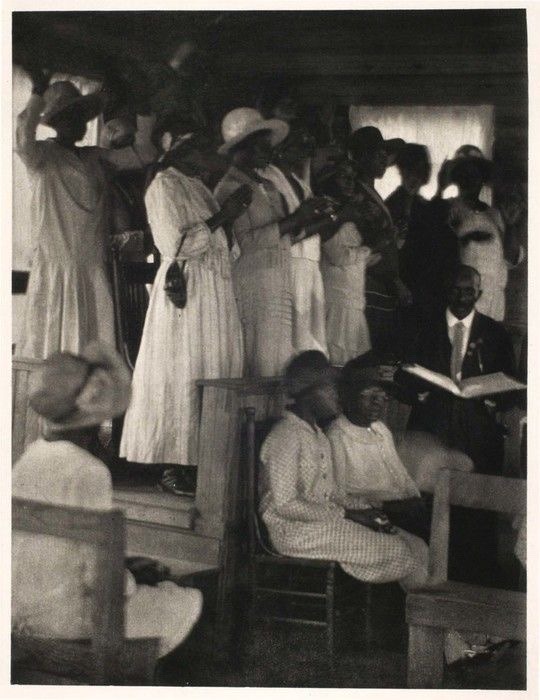
As previously mentioned in my post about "shouting," Black people approach worship differently, and our cultural influence extends to various religions we encounter. This manner of worship has roots that run deeper than mere survival; it dates back long before the era of colonization. Our unique approach to worship resonates deeply with the source, and we have been able to utilize the Bible to justify our practices.
Acts 2:4 (ESV) states that the disciples were "filled with the Holy Spirit and began to speak in other tongues as the Spirit gave them utterance." In the Black church, particularly the ones I attended, deliverance magic, akin to exorcism or the casting out of demons, was prevalent. When witnessing the casting out of a spirit, the individual performing the exorcism would often speak in tongues. My mother would emphasize that she wasn't addressing the person but the spirit.
Mark 16:17 (ESV) further supports this practice, stating that "these signs will accompany those who believe: in my name, they will cast out demons; they will speak in new tongues."
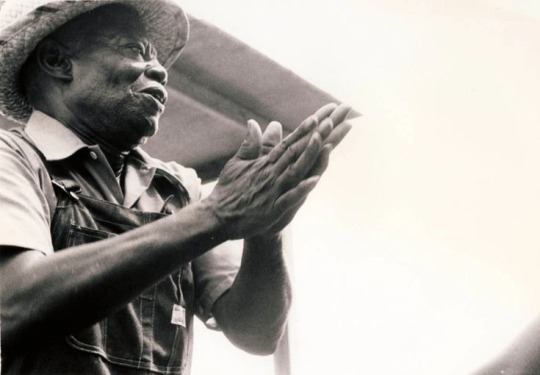
Despite its significance, many people question those who speak in tongues, doubting the authenticity of their utterances. They may ask, "What are they saying? Can you translate it?" The answer is generally no, as this conversation resembles a language of light—words only decipherable by the person and the spirit. Sometimes, the person speaking in tongues is unaware of the message once they emerge from the trance.
The discourse conducted through speaking in tongues is not meant for everyone's ears. It is a communication meant for specific individuals, often excluding the person speaking. Consequently, I do not advocate listening to or repeating others' tongues or mimicking the practice. The spirit being communicated with may not be in everyone's best interest. Speaking in tongues is a form of spirit communication bestowed upon only a few.
Please make sure you SHARE! SHARE! SHARE! For more if you enjoyed this post.
Don’t forget My MInd and Me inc is still seeking donors for The Peoples Praise House! Even if you cannot donate, SHARE ! Thank you !
@conjuhwoeman on twitter
@realconjuhwoeman on IG
#holiness#hoodoo#medium#ancestor veneration#witch#rootwork#black women#conjure#prophet#tutnese#luxury#old hoodoo#traditional hoodoo#seer#Bible#speaking in tongues
29 notes
·
View notes
Text
Binge reading Goddard books and it’s really helping me with my relationship with the Bible, I always had that gut feeling but this confirmation 🙌🏾
#bible hoodoo#black spiritualist#hoodoo tumblr#black spiritualism#hoodoo#african american spirituality#african american culture#black spirituality#black tarot readers#rootwork tumblr#off topic
0 notes
Text
I like big books and I cannot lie 🎶




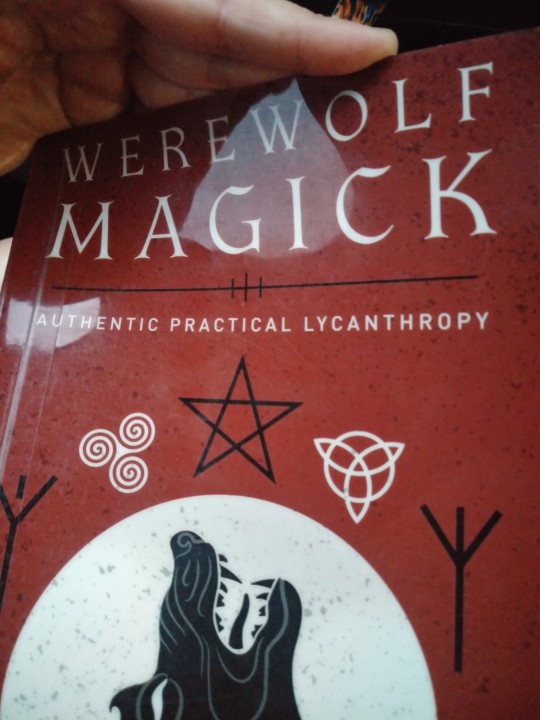
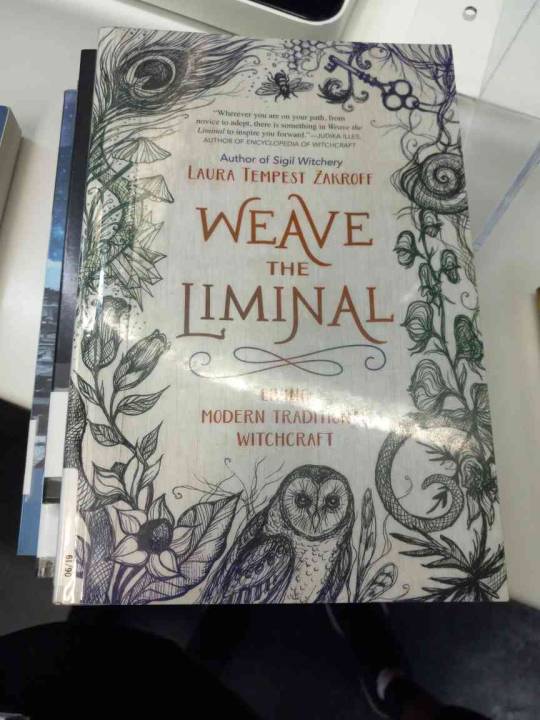

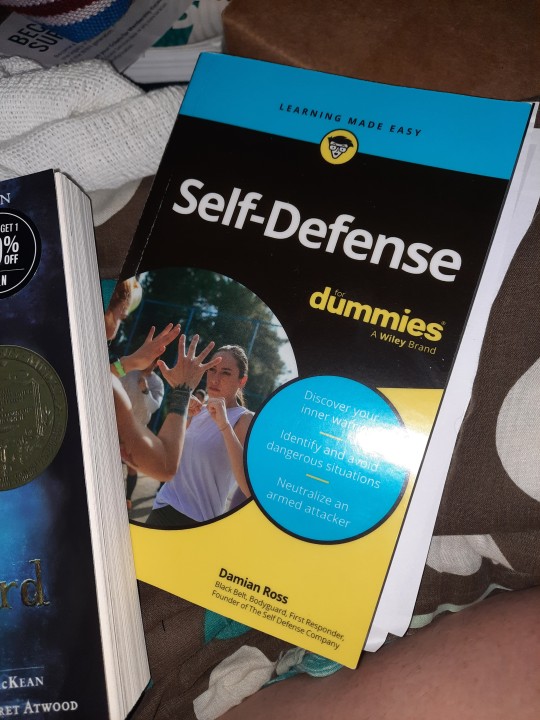
some books I gave recently grabbed from the library.
I liked and wanna buy Do I Have To Wear Black? Lots of good info in there on funerary customs. I wasn't sure I was gonna like it because of the Wicca mentions at first but I was actually pleasantly surprised as I got into it. I sort of blew through it tbh because I'm not super interested in like the Kemetic or Wiccan customs, just the Norse/ heathen and Hellenic, but the very general parts at the beginning were really informative. Mortellus is a mortician and 100% definitely knows what in the heck they're talking about.
I skimmed through the Thrifty Witch book and Tarot Interactions before bringing them back because those I just need to have/ buy. I need to buy those. Thrifty Witch would definitely be more useful to me as a resource than something to read if that makes sense.
and similarly with Tarot Interactions, that is an absolutely fantastic excellent book from what I read of it, and I definitely absolutely need to have that as a resource. I also feel like that's something I wanna take my time with, not rush.
Werewolf Magick was meh. I soared through it. I was rolling my eyes at far too much of it to take any of it seriously, and by the time I got to what I was interested in/ what might have helped, couldn't understand it because of all the weird lingo/ jargon that he'd set up at the beginning. Admittedly that's my own fault obviously for trying to skip to the end, but the first part just made me cringe too much. There's too much mixing of different practices in a way that imo honors none of them, and then mixing it with crap like Wicca to boot. I just... no, I'm good, no thank you. I had gotten it out of curiosity, expecting it to not be much and... yeah, it was what I expected.
Witch Queens, Voodoo Spirits, & Hoodoo has been fantastic so far and I have got to finish it. I started it and got distracted and it went back on the shelf and I've gotta get back into it. It starts with Annie Christmas who is none of the things mentioned on the cover, lol, but I love the way it talks about our local myths and legends. Absolutely A+ 100% yes.
Weave the Liminal is... surprisingly better than I expected so far? I'm not quite sure what to make of it. We'll see as we go.
I've had the ones in that first three pictures checked out for a while and I really need to get to them. I was hoping the Shamanism Bible would give me some words to look up, a good place to start research into that but it feels like too much of a chore. The charm bag and ancestor books I just keep forgetting I have, and I expected the New Orleans one to be a quick read but again keep forgetting it's there.
Did I grab too many books? Yes, every damn time. I have maxed out how many I can borrow from the library. Oooops. xD
I absolutely had to grab The Holy Wild Grimoire though when I saw it on the shelf because that has been on my wishlist for a while and I love checking out books before buying them. I feel much better about purchasing when I already know I like them.
#books & libraries#library#books and reading#pagan witch#witchcraft#witchblr#adhd witch#divination witch#eclectic witch#goddess of witchcraft#neurodivergent witch#oracle witch#hekate#morrigan#voodoo#voodou#new orleans#hoodoo#shamanism#shamanistic#books are magic ✨#amulets & talismans#charm bags#ancestors#ancestor magic#history#research#funerary rights & practices#death dying funerals#paganism
30 notes
·
View notes
Text
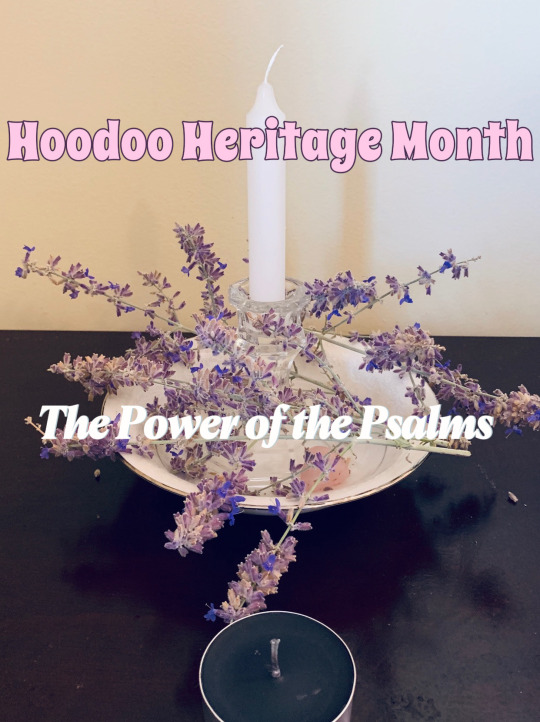
BIBLIOMANCY: THE PSALMS 📖🔮🕯️
During the many centuries of American history, Black African Americans had contact with various different religions and ethnic cultures ie; multiple Indigenous Tribes, Jews, Appalachians, Dutch, Swedes, Caribbeans, Haitian Kreyols and many more, through the Chattel Transatlantic Trade an land migration. These pivotal interactions are introduced the assimilation of many ritual practices. Hoodoo is a multiculturally mixed practice, with many nuances and intersections. It reflects the attitude and practices of many different generations, cultivated, passed down and preserved. While purists believe in keeping Hoodoo strictly traditional, the realist and preservationists, see Hoodoo as a constantly evolving and cunning art form, always adaptable to the times. Throughout the 1600 - 1900s, multiple different denominations of the Abrahamic faiths were wide spread through the United States influencing Black American folk magic and way of life.
Bibliomancy was already a common folk practice at and slowly making into the consciousness of Black American folk Magick.
The first book printed in North America to contain the psalms was The Bay Psalm Book, published in 1640 in Cambridge, Massachusetts by Minister an Planation Owner, Joseph Glover, who was well known for being the pioneer of printing in the English colonies and was one of the co-founders of Harvard University. Without sufficient historical evidence we can only speculate that this is the it’s one possible origins of the usage of the psalms in Black American Folk Magick. Glover was a Rector aka a parish priest for the Church of England and was decently educated. It is highly likely during his studies in England he had access to Jewish Psalm Prayer Books which inspired him to publish one of his own, when he came to America. There were also a small afro-jewish populations and various intersectional social connections with the black community, with the Jewish, Catholic and other various Christian religious denominations that were also clear influences.
The Church was a place of indoctrination but also social relief, community and emotional escapism for Black Americans during these times. Throughout the centuries the Indoctrination of the Church became the only source of solace and safety for Black American mental health & society during ever shifty and dangerous social climates. Deeply imbedding itself into consciousness of the black community, subconsciously and consciously, which we can still see in modern times.
As the ability to read and write increased within the black community, in addition to the growth of printing more books access to reading the Bible and the Psalms became easier and easier. Now the Psalms were seen as a powerful book of spells in African American folk magick, with a multitude of different uses. Psalms could be scratched in the mud, written on doorways, or just simply spoken or prayed over folks, tools, plant allies, talismans, mojo bags, roots, other items, water, candles and more. The intent could be love, justice, abundance, peace and even hexing. Eventually, this belief trickled down to usage of other verses, from other Bible, an influenced African American communities, all over the country. Each community like their own little tribes, some with similar or different practices and rituals, regionally.
In practice, The power of the psalms was unmatched, people swore by it by its success rate and still do to this day, which is why the practice has stuck in modern times.
The Psalms were a vehicle of rejuvenation and life, these scriptures were considered living words of power. I’ll go into the sacred mythos behind that, for members of my Patreon, later on this month.
For some Black Americans it’s easy to overlook and even discard the power of bibliomancy especially when they have deep religious trauma when it comes to any Abrahamic faith (Baptist, Catholic, Christian, Cogic etc) which is understandable. These feelings are valid & practicing Hoodoo, means understanding the many intricate nuances of the intersection and history of this folk culture. Others also see the value in Bibliomancy and continue this ancestral practice in modern times, knowing two things can be true at once. There is a great deal of duality in Hoodoo, which is something many of us have come to accept and honor at the same time. Respecting this balance demands a deep sense of self and cultural respect, a discerning eye and great deal of empathy, whether practitioners like it or not.
Using the Psalms is a powerfully easy way to reconnect and heal with ancestral Black American practices and medicine. It’s not a requirement of course, but it’s fun to encourage other black Americans to practice and discover all of its hidden powers. Many African folk practices, were hidden out of survival, requiring a level of covert cunning. Bibliomancy was a clever way hide in plain sight without attracting too much attention. Think of our ancestors as secret agents of truth, justice with a covert strategic mentality that still has important place in modern times. Some magick requires a keen mind, good sense, without calling any attention to itself, teaching us the practice of self control and discipline. This is why the practice of bibliomancy is important, allowing you to tap into this energy and honor your ancestors and yourself.
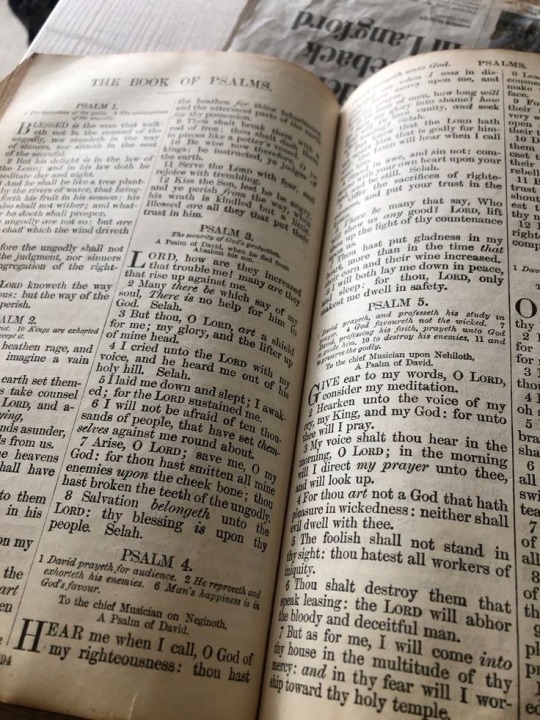
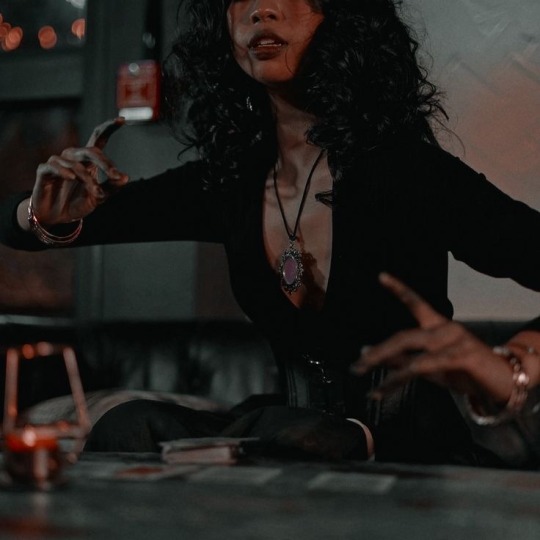
Examples of Bibliomancy
Psalms 54 - Help In Times Of Need. Mastering Negative Thoughts, Revenge Against Enemies.
Psalms 60 - Put The Past Behind You.
Psalms 41 - Help With Money Troubles
Psalms 23 - Protection, Abundance, Stability & Healing
HAPPY HOODOO HERITAGE MONTH ✨
🕯️🕯️🕯️
#hoodoo#salem#black community#black culture#black history#hoodoo community#psalms#bibliomancy#witches of color#black spirituality#spirituality#witch community#witchcraft#african american history#folk magick#occult#jewitch#rootworker#witchesofcolor#black americans#black witches#pagans of tumblr#witchblr#conjure#black american history#black american culture#black femininity#pagan community#witch history#hoodoo heritage month
41 notes
·
View notes
Text
Lord's Prayer
I found this section on the Lord's Prayer in Hyatt's 5 Volume of Hoodoo and Conjure to be wonderful to be added for daily prayers in work and businesses. Just to repeat the Lord's Prayer three time before going to work! quite a potent method.
Ah wanta tell yo' anothah thing, too, an' ah hope ah'm not sayin' too much. Aftah yo' have sealed yore papahs, aftah yo' have gotten everything, then there is a power, a supernatural power that is beyond all power. Yo' do's whut ah'm tellin' yo' tuh do a little bit an yo'll find out yo'll be blest in whatevah yo' undertake tuh do. Whenevah yo enterin' yore business every mawnin', yo' enter it in succession with repeatin' de Lord's Prayer three times, befo' goin' to yore work. An' if yo'll only do that, if yo'll only do that, yo've got every protection an' yo' got every power that God will allow man tuh have under de sun. An' then yo' placin him in front, an then he will make the way possible that seems impossible, an' then he will keep from yo' the othah evil things an' yo'll be successful in yore undertakin's dat's real.
Informant #1532, A 50 year old woman, professional rootworker, Page 1120, Hyatt's Hoodoo volume 2
An' ah wanta explain to yo' 'bout de Lord's Prayer. If yo' seems yo' cain't git no ends yo' have tuh meet, yo' know, be jes' unlucky wit de land [town] or anything, yo' don't pray to de Lord, yo' know, an' tell Him about dese things, yo' jes' repeat de Lord's Prayer three times a day, morning, twelve an' at noon [see later], repeat de Lord's Prayer. Dat's de Bible. All dat ah 'm givin' yo' now - it's God . Yo' repeat dat an' yo'll be successible in repeatin' de Lord's Prayers. Aftah yo' repeat de Lord's Prayer fo' three days in concession - yo' don' have tuh tell Him 'bout yo* wants dis an' dat an' dose [the Lord's Prayer is sufficient; a gimme (give me) prayer is unnecessary]. Yo' git down an' repeat de Lord's Prayer in de mawnin' an' repeat 'em at twelve an' repeat 'em at night, an' dat makes things bettah fo' yo'.

#occult#witchblr#magic#invocation#prayer#hoodoo#folk magic#spellwork#witchcraft#prayers#conjure#afro witch#black spirituality#voodoo#magick#theurgy
18 notes
·
View notes